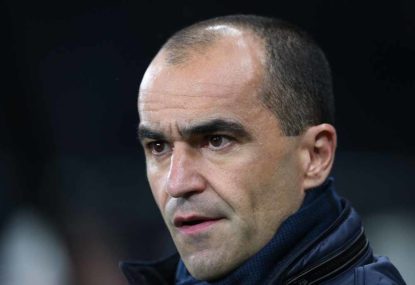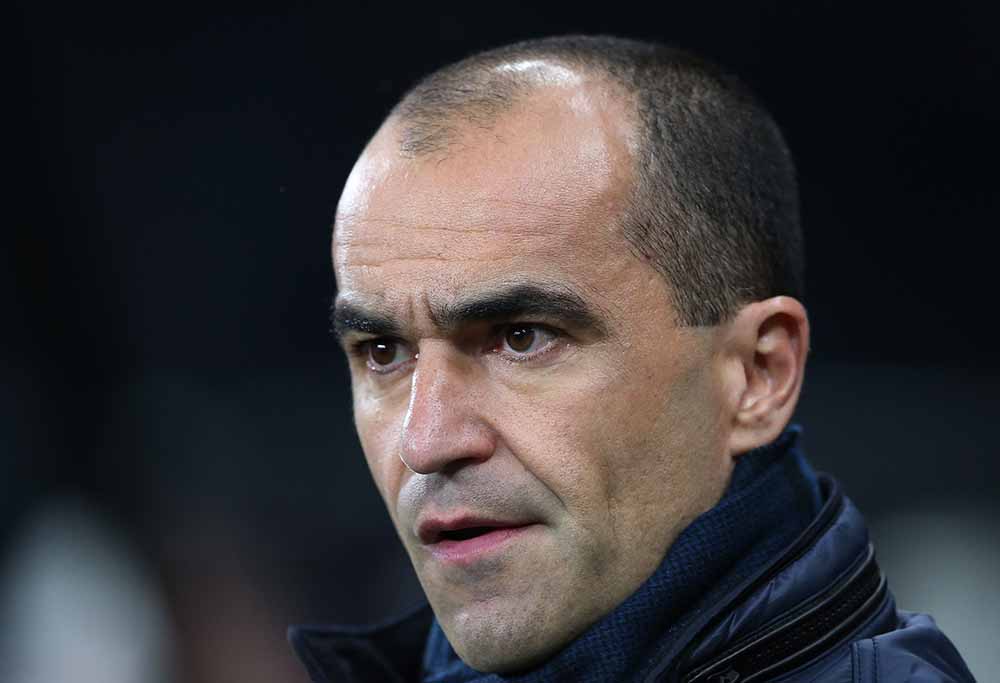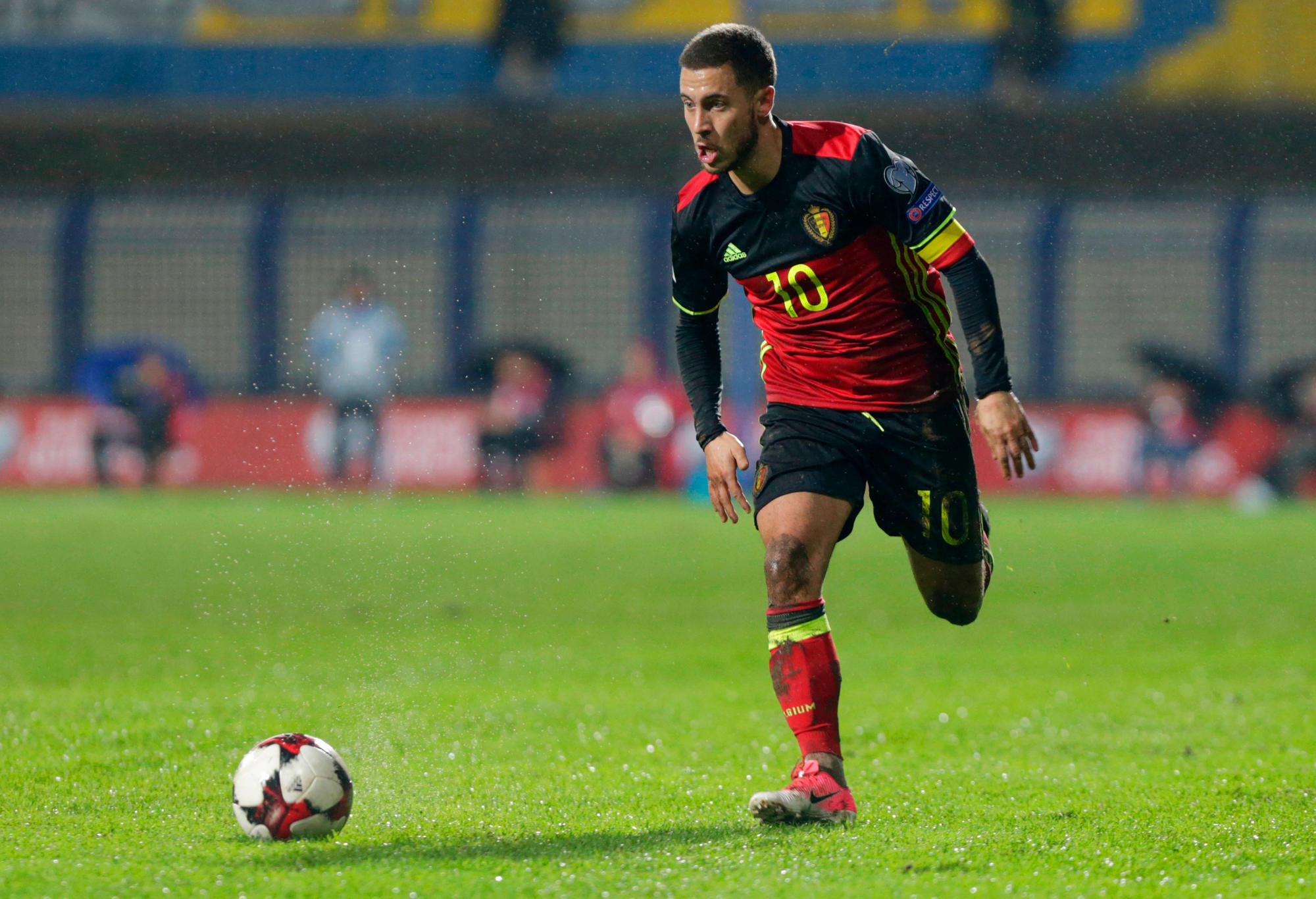Controversy as Villa keeper handed second yellow for shootout crowd taunting... but isn't sent off
Emi Martinez was saved by a new rule that resets yellow cards at the end of extra time, meaning his second yellow for taunting…

Watching Belgium roar back from a two-goal deficit against Japan was a thrilling experience.
This generation of Belgians – all in their primes, just about, and having spent at least three major tournaments settling into place beside one another – is so packed with talent, so stuffed with creativity, so dripping and spurting with ambrosial football juices.
When such an astonishing array of world-class players are lashed together it can often be difficult to channel all this talent coherently, to re-divert these dazzling ultralight beams of open-play invention to focus on a common, agreed-upon intention.
Without this, instead of laser-focus and precision execution, you can get a disco ball of disparate energy, diluting and rendering impotent a team that on paper seems impossible to muck up.
Sure, it looks pretty for a while, but eventually the disco ball stops turning and the lights go off.
Roberto Martinez has been charged with this job, to negotiate the glimmering waves and solar flares of Belgian talent and arrange them in a way that will finally realise the team’s staggering potential.
The former Wigan and Everton manager is by no means a flawless tactician, but where his strengths lie is at the attacking end. There are few managers more able to keep a team’s attacking rhythms thrumming along in the delicate higher gears; his teams are always fluid and energised in the final third, even the less talented Martinez squads. In his final year at Wigan his team ranked ninth in chances created – that lot won the FA Cup and were relegated from the Premier League in the same season.

(AP Photo/Scott Heppell)
Tracking his three years at Everton is a most illuminating exercise. You can see the layers of defensive steel that David Moyes spent a decade grittily galvanising onto the club’s identity erode back to the tender unprotected base layer. In Martinez’s first season – by far his most successful at the club – the pre-existing Moyes stolidity allowed his attacking scheme to flourish, and his team scored 61 goals and conceded just 39 while finishing fifth.
The next season they scored 48 goals, conceded 50 and finished in 11th. The season after that they scored 59 and conceded 55, again finishing 11th.
During the three Martinez seasons Everton ranked sixth, first and fourth in defensive errors committed. There were matches in which it appeared as though Everton had decided to forgo defending and simply outscore the opponents. Sometimes it worked, like the 6-2 win over Sunderland in his third season. Often it didn’t – Everton’s 2014-15 season began with two consecutive 2-2 draws followed by a 3-6 defeat to Chelsea, really wild stuff.
When he was sacked it was clear that Martinez’s inability to organise a defence was the main reason – to put it even more bluntly, it was the manner in which he allowed what had been a decent defence the three seasons prior to his arrival to disintegrate into a leaking sieve essentially over the course of a season and a half. Martinez enjoyed record investment during his tenure and had Romelu Lukaku as his starting striker all three years.
So, it was clear to all onlookers exactly where Martinez’s strengths and weaknesses lay as a manager when he was hired by Belgium. If you had to weigh it up, although Toby Alderweireld, Jan Vertonghen, Vincent Kompany and Thibaut Courtois are three of the best defensive players in the Premier League, the bulk of Belgium’s talent lies in attack.

(AP Photo/Amel Emric)
You can see what a team brimming with attacking weapons but stewarded by a fairly conservative defensive-minded manager looks like by glancing over at Didier Deschamp’s France, who are more than capable of dominating possession and playing wonderful flowing football but prefer to defend stoutly and scythe through on the counter, or indeed by looking at any of Jose Mourinho’s great teams.
Mourinho’s career-long success, or indeed France’s rip-snorting win over Argentina, in which they had 40 per cent possession and played 200 fewer passes than Argentina, are evidence that this approach, while a little hard on the eye at times – Mourinho, not France versus Argentina – can be hugely successful.
But the aesthetes will appreciate Martinez for not subscribing to that tactical view, because his Belgium team are a sight to behold; not only have they scored the most goals in the tourney so far, they’ve scored almost double the next highest amount of open-play goals. In a World Cup dominated by penalties and set-piece goals this isn’t just a breath of fresh air, it’s the breath of life.
But, like it did with Everton and Wigan, this attacking fluency comes with a cost. Although they should have scored at least two goals in what was otherwise a dominant first half, Belgium consistently allowed Japan to pass through their midfield.
The Samurai Blue repeatedly found overlapping wingers and full backs and got into nice advanced positions because their primary playmakers – Shinji Kagawa, principally – were allowed to conduct play from the middle with relative freedom. Take this sequence here, from early in the match when the teams’ tigerish energy should have been at its most ravenous – there’s a softness to the way Axel Witsel and Kevin de Bruyne allow passes to be played around them. Japan can’t make anything of the move, but this was typical of Belgium’s off-the-ball demeanour.
Of course Witsel and De Bruyne are not really dedicated shielding midfielders, the latter in particular. Here’s a clip of Martinez talking on British television about de Bruyne and his more reserved role for Belgium. Martinez’s reasoning is sound, and clearly positioning De Bruyne in deeper areas to maximise the time and space he has on the ball is a very good thing to do.
Certainly the Manchester City player has the passing range and vision as well as a surprising ability to drive past players off the dribble to affect the attack from a holding midfield position.
Martinez goes through a number of similar clips showcasing De Bruyne’s versatile attacking skills being implemented from a number six spot but – perhaps unsurprisingly – never once mentions the extra defensive responsibilities a deeper role like this comes with.
At City, De Bruyne plays alongside Fernandinho, one of the league’s premier defensive shields. Defensively Witsel is no Fernandinho, and one wonders exactly how bad the personality clash between Martinez and Radja Nianggolan must have been. Nianggolan, who was left out of the squad, is a phenomenal two-way midfielder and would have been an ideal partner for De Bruyne.
Overall, though – or perhaps just until this point – Martinez’s defensive shortcomings are much less of an issue at a World Cup than they are at club level. The long grind of a Premier League season, where teams know who they’re playing months in advance and can scout, analyse and set up accordingly, means defensive flaws are much more exploitable.
Furthermore, international tournaments generally have a more defence-first default demeanour, as national teams with relatively little time to prepare have to come together and thrash out wins in succession. Just look at Russia to see how defence-first can overcome all sorts of dizzying odds. Because of this, Martinez is working with less risk from the start, though that risk increases as the tournament goes on and opponents get better, more fluid and more confident.
Obviously, this Belgium team is also much more talented than any club team Martinez has ever built, which again also helps mask his flaws. The decision to value attack over defence – exemplified in the De Bruyne-Witsel midfield combo – is a brave, positive decision, and the neutrals have been better off for it.
Belgium’s next test however, against Brazil, may expose the fragility of Martinez’s approach – 5-2 and 3-2 wins are all well and good, but playing that way against a Brazil team that has conceded just once all tournament may not be wise.